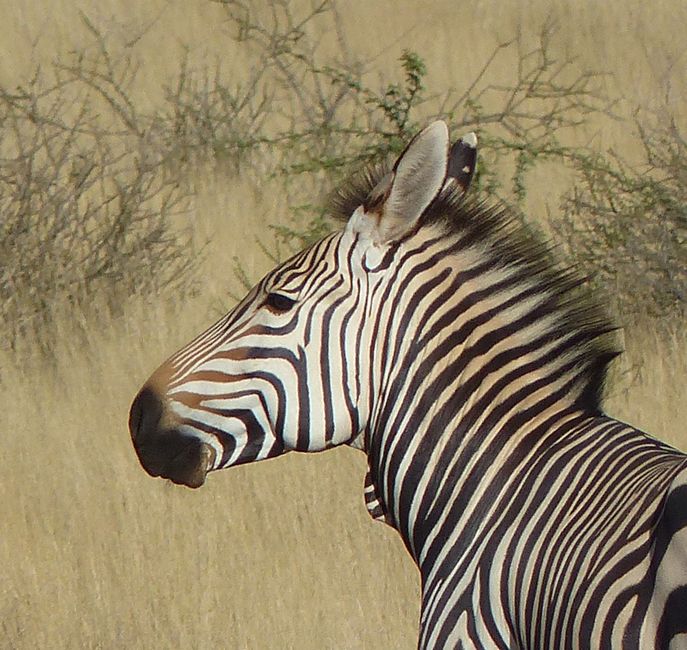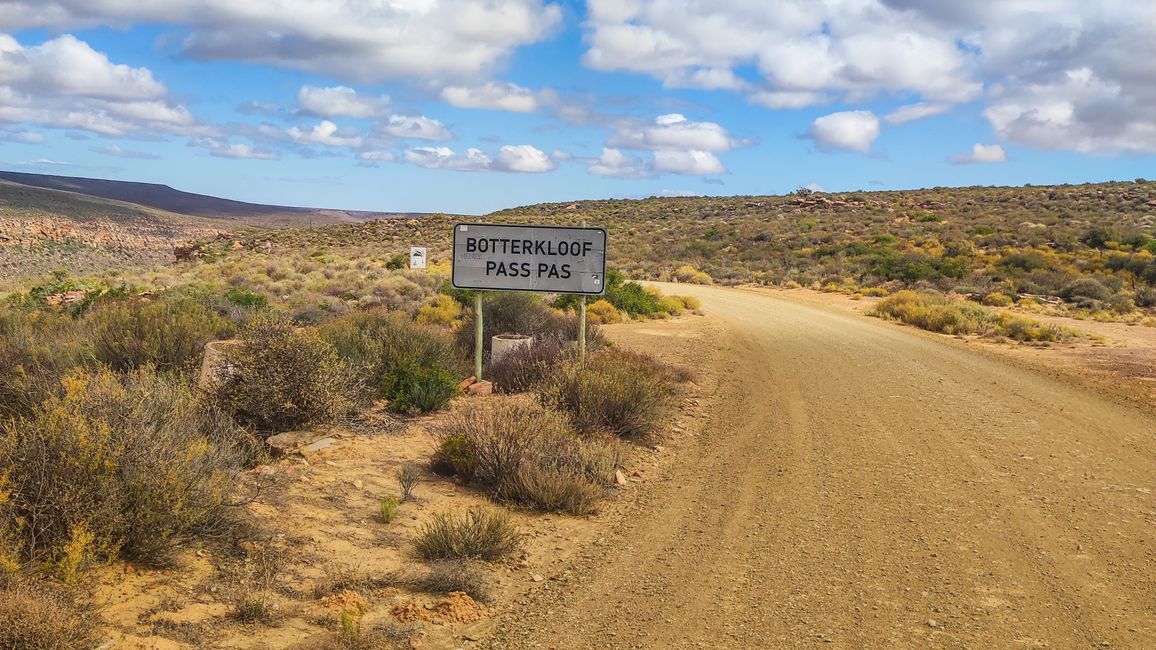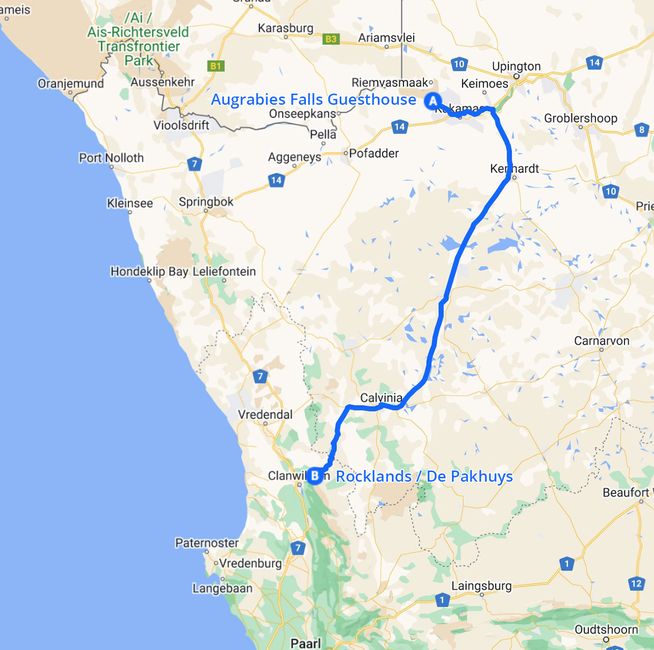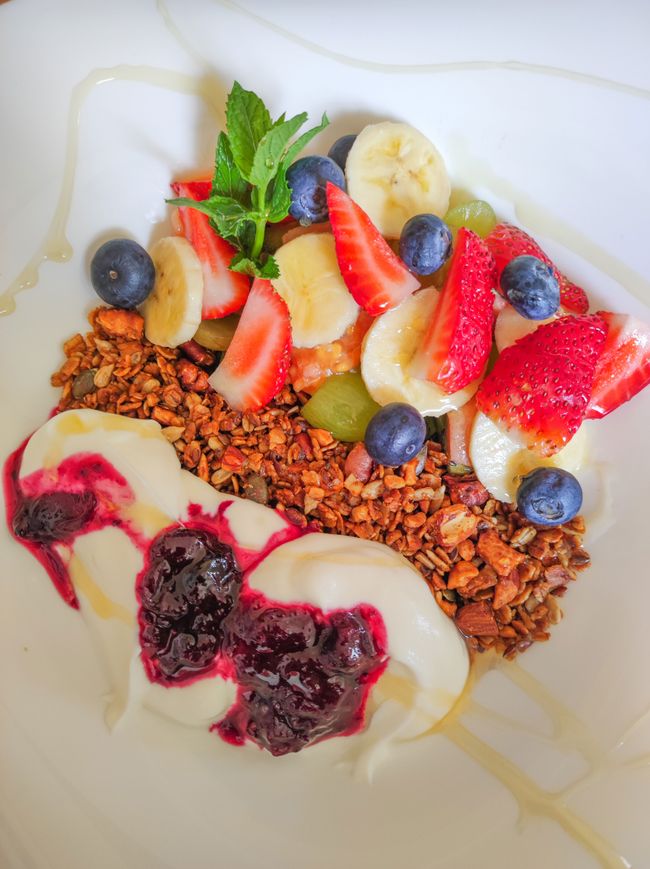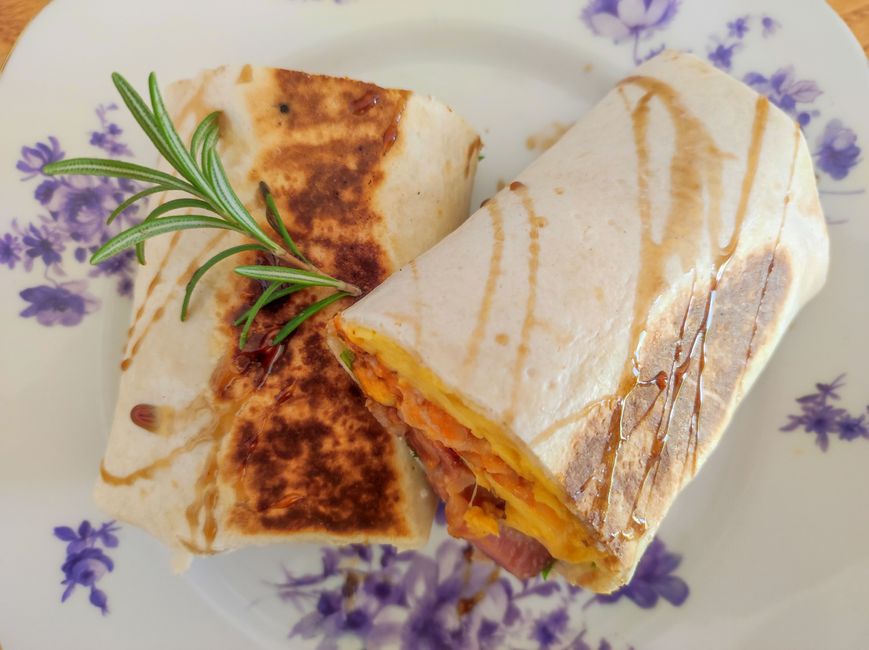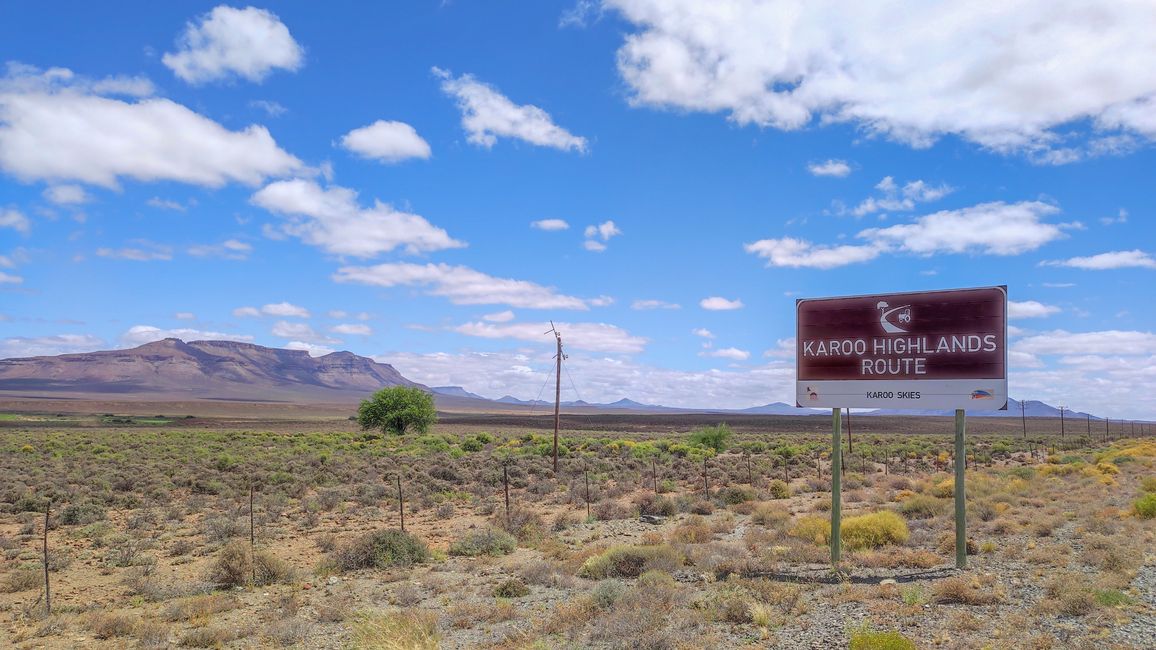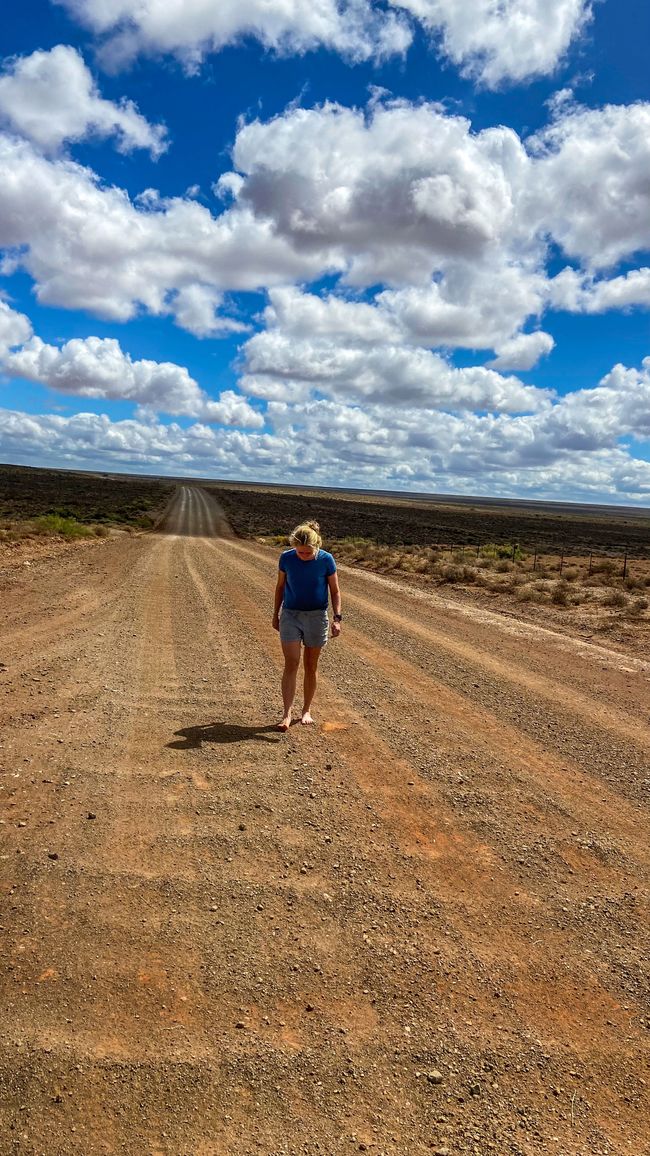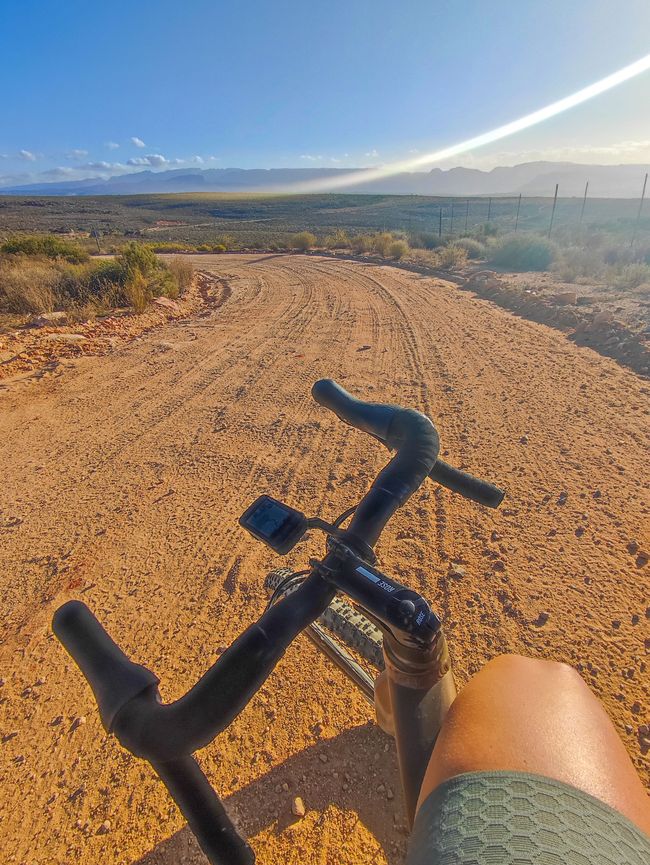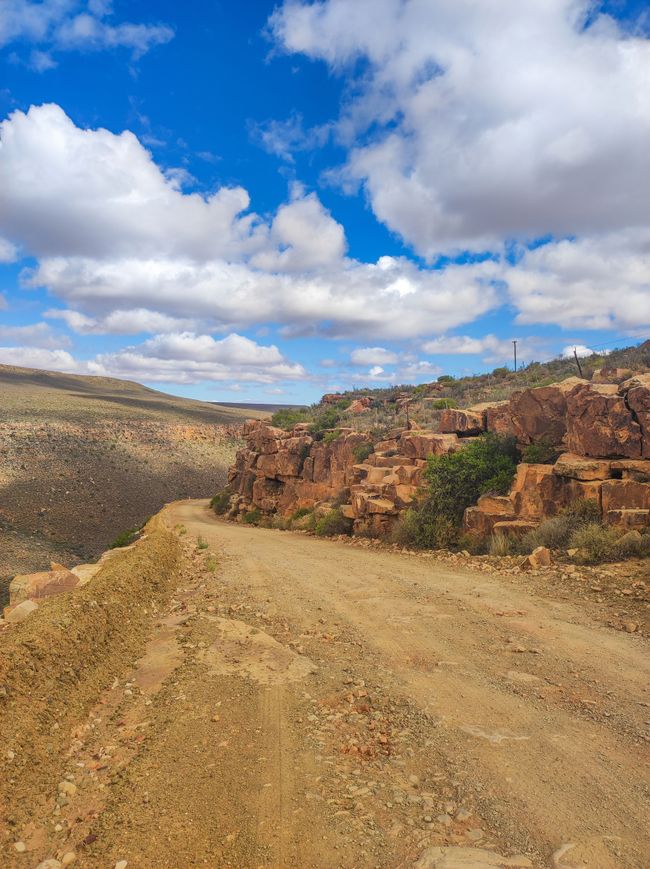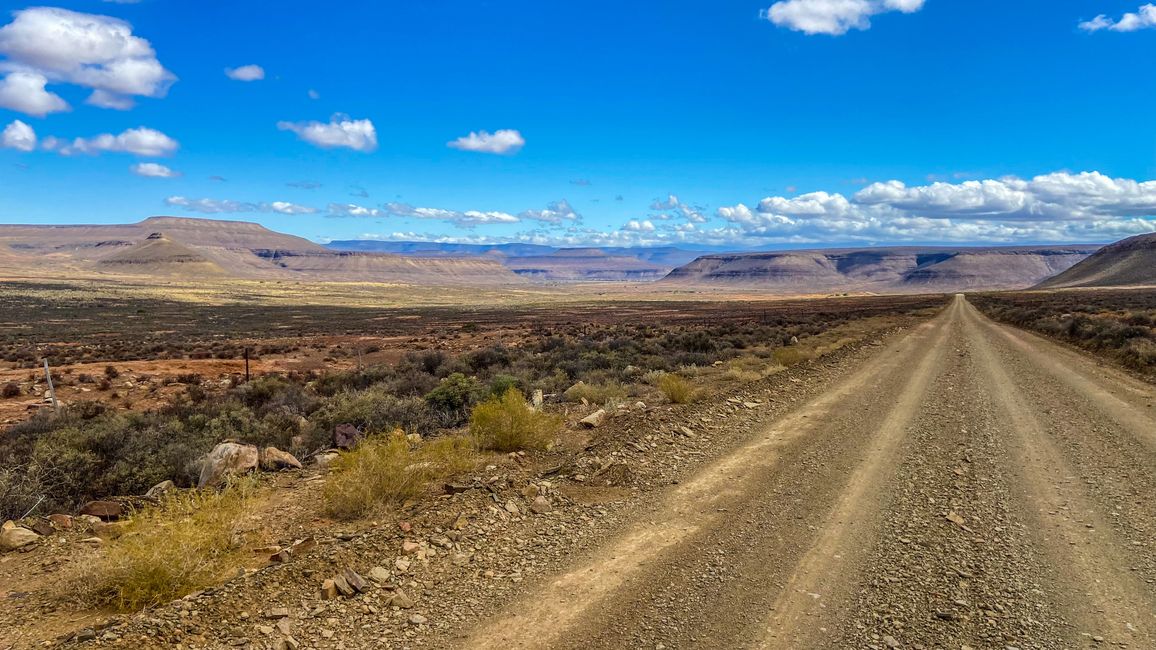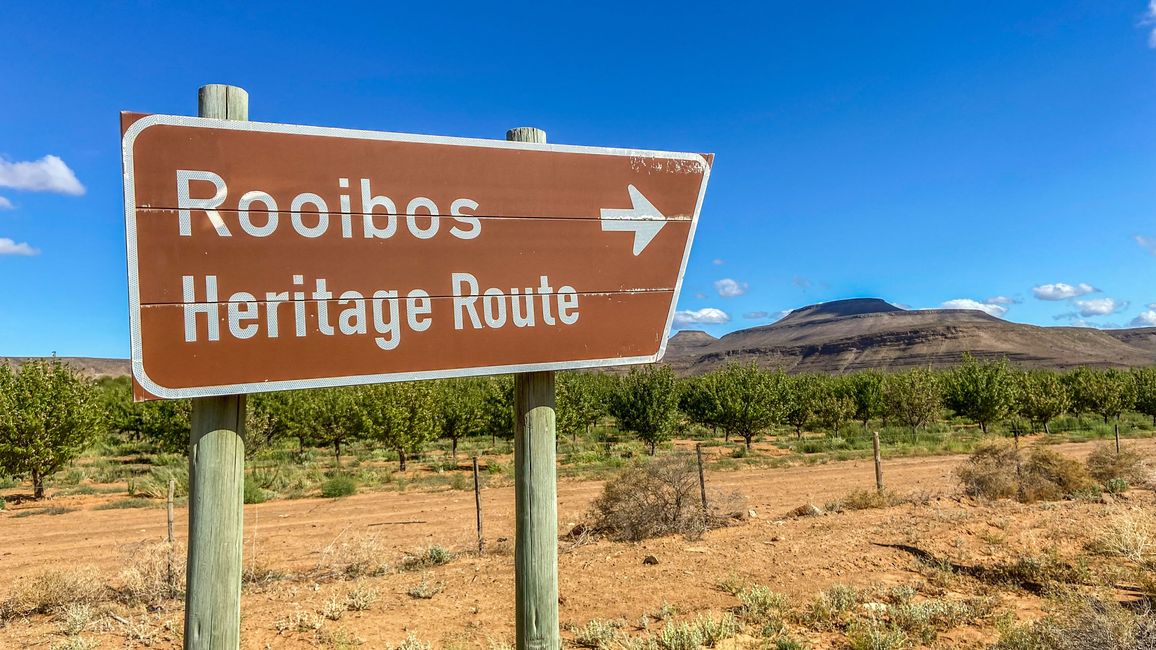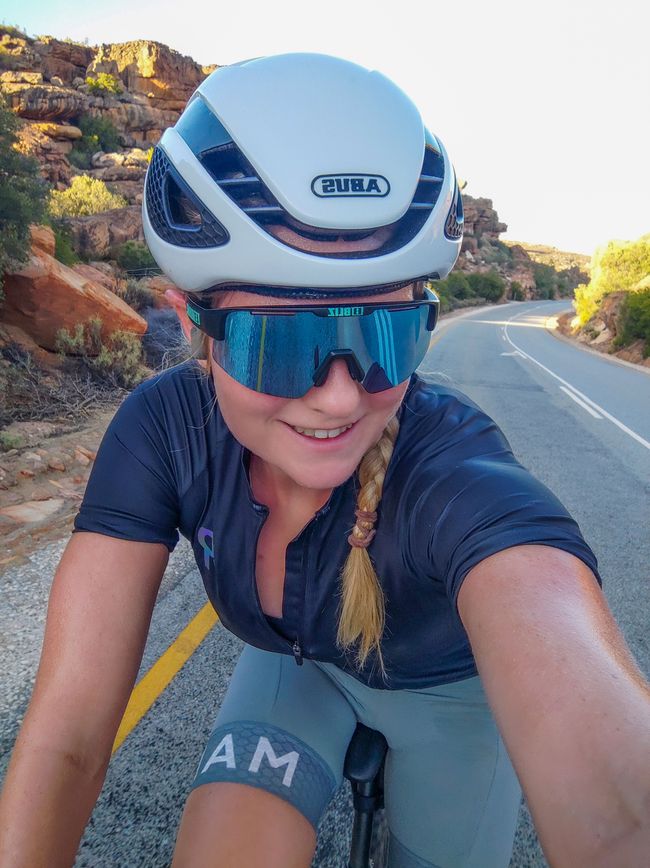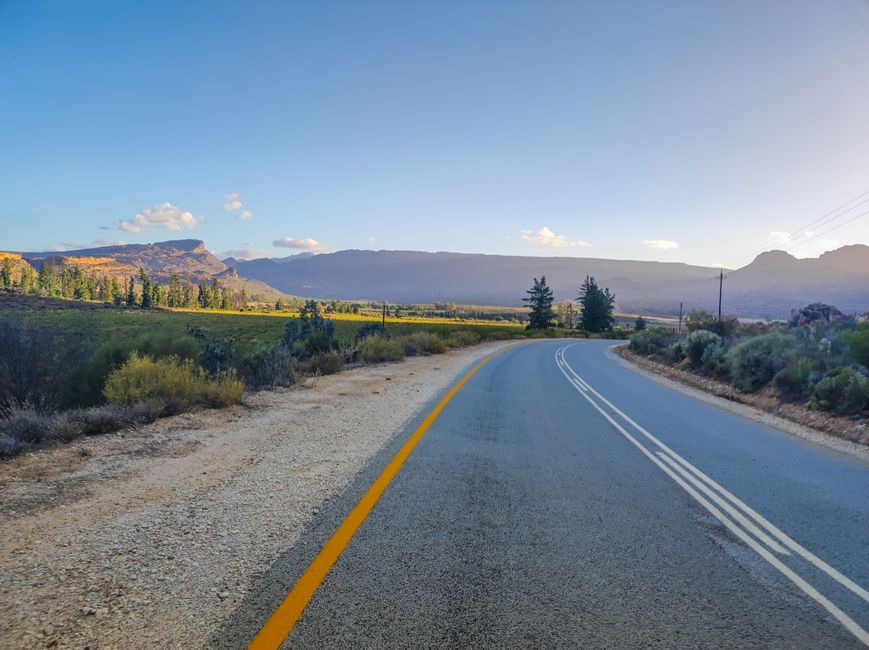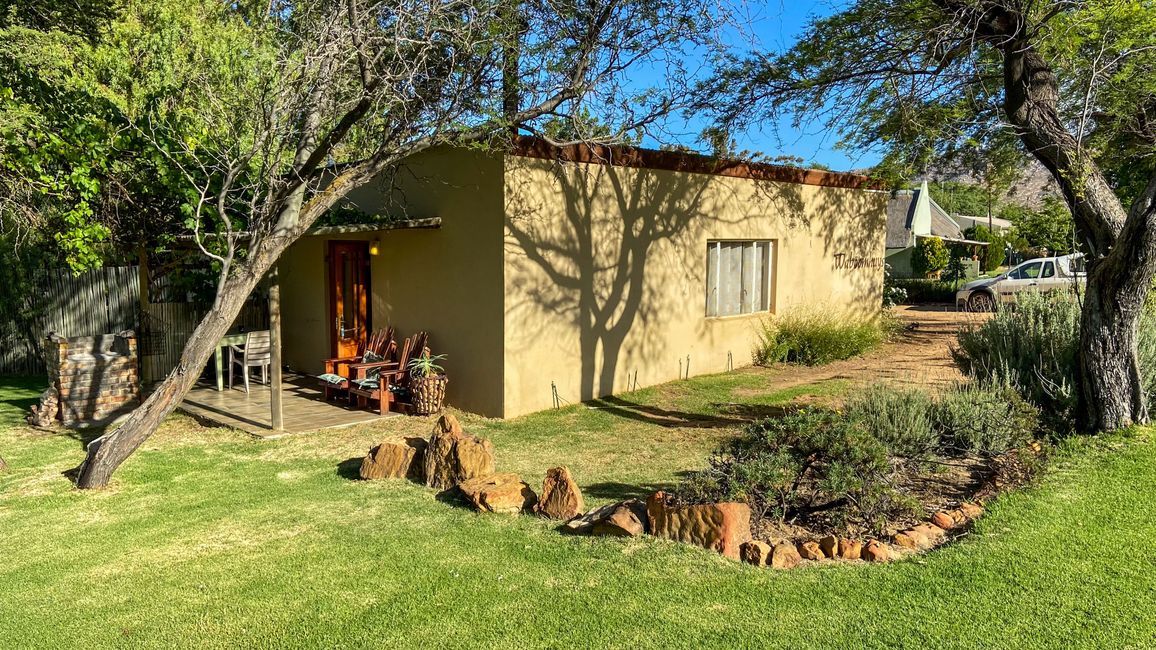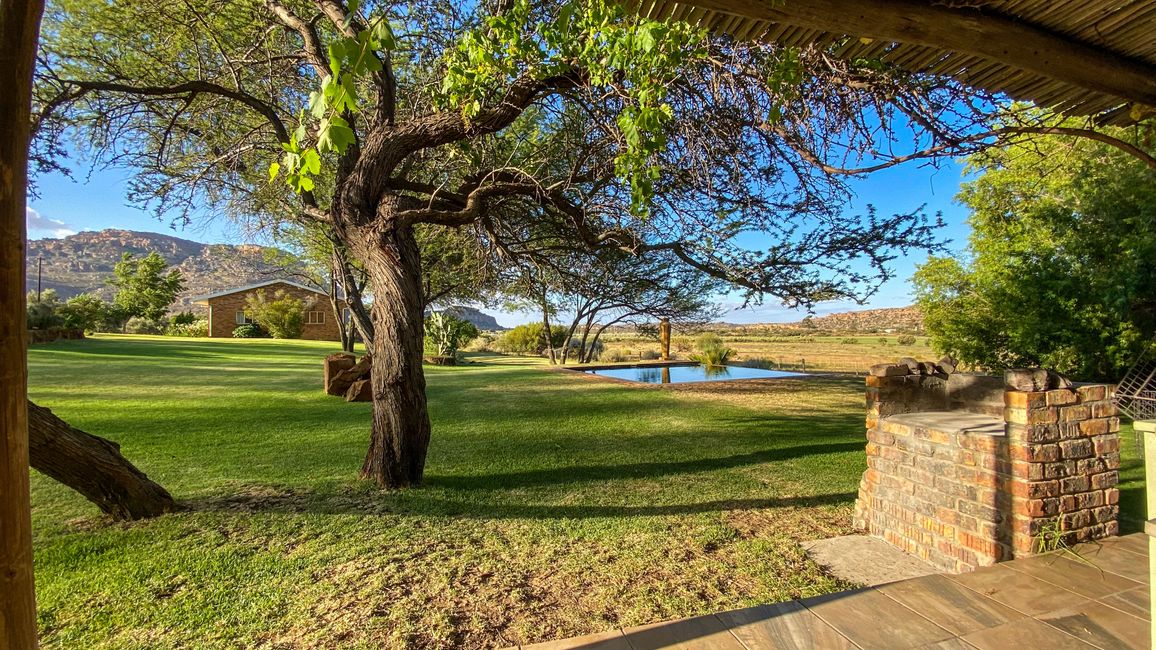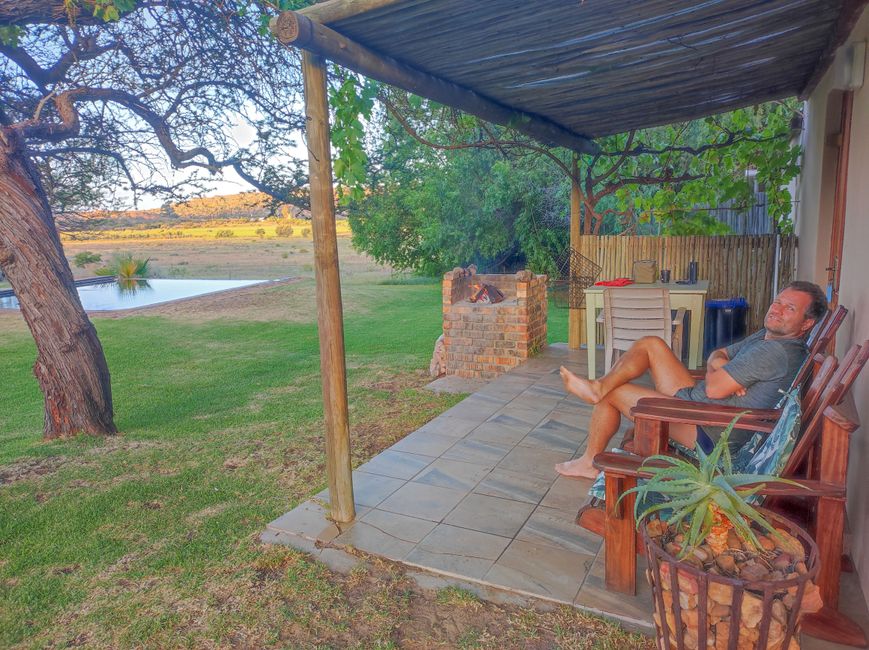Two Passes
प्रकाशित: 15.02.2023
समाचार पत्रिका के लिए सदस्यता लें
Tag 28, 24.01.23, from Augrabies to Clanwilliam
Once again, it's time to pack our things and take the first step back to Cape Town, with a stopover in De Pakhuys, just before Clanwilliam. Since we have a long drive ahead of us, we have a leisurely breakfast at the Rose Café in Kakamas and enjoy delicious egg dishes, granola, and cappuccinos.
We decide to drive on the R27 to Calvinia and then southward into the Rocklands. The first 400 km take us through the beautiful Namaqualand. We checked the guidebook to see what's here... nothing. Except for vast expanses where nature seems infinite.
Just before Calvinia, we reach the Karoo Highland Route. It is located in the southern part of the Northern Cape. The route includes the small Karoo towns of Nieuwoudtville, Calvinia, Williston, Sutherland, Fraserburg, Carnarvon, Loxton, and Victoria West, and forms the heart of the Great Karoo.
After a quick shopping stop in Calvinia, we then turn onto the R364 and are surprised, as we thought this road was tarred. Since Cindy wants to bike the last few kilometers to De Pakhuys, we decide to shorten the route. After a brief inspection of the road surface, she gets on her bike. I drive the route with the car and am thrilled when we reach the Botterkloof Pass, which takes me from the Karoo Highlands down into the valley and transitions into the Rooibos Heritage Route.
Rooibos is unique because it is native to the South African mountain region of Cederberg (north of Cape Town), where it still grows and thrives today.
Rooibos is actually not a true "tea" at all. Rather, it is a plant that can be brewed into a reddish-brown herbal tea after harvest and drying, which is referred to as "African red tea" or "Rooibos tea" by the tea industry.
While early tea-drinking Dutch settlers of South Africa popularized the brewing of Rooibos in the 17th century as an alternative to the more expensive, imported black tea of the time, Rooibos only developed as a commercial tea plant in the 1930s.
Compared to regular black tea or green tea, Rooibos is lower in tannins, caffeine-free, and free of oxalic acid, and is full of health-promoting antioxidants.
Just before the De Pakhuis Pass begins, we turn left into the Rocklands. This ancient region of land has been shaped by the elements over countless millennia into a landscape beyond imagination.
This wondrous place is a paradise of boulders, spires, and cliffs. There are hectares upon hectares of the most incredible sandstone, solid, fascinatingly reddened, and perfectly arranged for climbing. It offers excellent sport climbing routes and is famous for its world-class bouldering.
There are also beautiful hiking trails here, such as the Kloof Walking Trail, Waterfall Trail, Die Platt Trail, and Heuningvlei Trail. All of them offer spectacular views, and you can be overwhelmed by the deep silence of the Rocklands.
Just in time, shortly before 5 pm, I catch the manager who shows me our De Pakhuys cottage, the Waboomhuys, for the night. A real tranquility, as they say here, a place for peace and relaxation.
I quickly jump into the pool and start the fire for the evening braai, and Cindy also arrives at the cottage, but only to refuel briefly as she still wants to cycle up and down the pass.
We sit comfortably in the garden chairs with our food, like every evening, but something is different today. It's load shedding again, which we have become accustomed to, but Cindy is bundled up in warm clothes and there's a cozy blanket over our legs... It has actually gotten cold in the evening, the first time in four weeks. Although cold is a matter of definition, it's around 12 degrees, but after the heat of the past weeks, we are actually feeling a bit chilly.
Nevertheless, we enjoy our meal and decide to stay one more day at this beautiful place to make the most of tomorrow with hiking and cycling.
समाचार पत्रिका के लिए सदस्यता लें
उत्तर
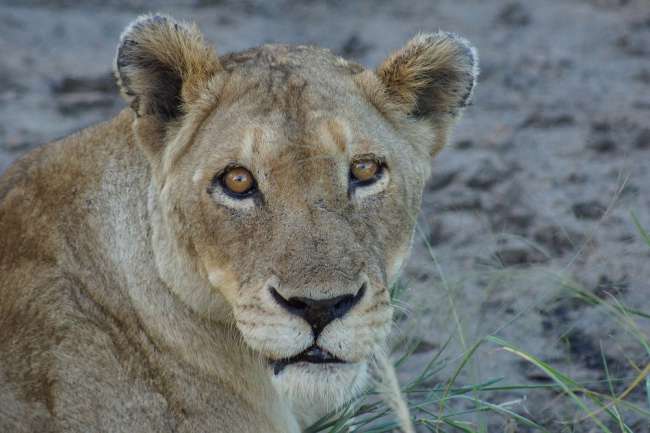
यात्रा रिपोर्ट दक्षिण अफ्रीका

